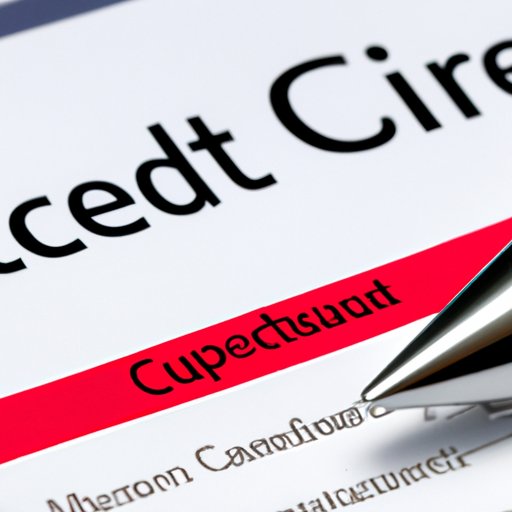
Introduction
Your credit report contains important information about your credit history and can impact future financial decisions. By understanding how to obtain and use your credit report, you can better manage your financial health and make informed decisions.
The purpose of this guide is to provide readers with a comprehensive guide to obtaining and using credit reports.
II. Understanding the Importance of Your Credit Report and Why You Need to Get It
Credit reports are documents that contain information about your credit history, including credit accounts, payment history, bankruptcies, and other relevant financial information. Your credit report is used by lenders, employers, and other organizations to make financial decisions about you.
Having a good credit report is important because it can impact your ability to secure loans, credit cards, and even job opportunities. A good credit report can also lead to better interest rates and more favorable loan terms.
Additionally, your credit report can impact your credit score, a three-digit number that summarizes your credit history, and is used by lenders to assess your creditworthiness.
III. Step-by-Step Guide for Obtaining Your Credit Report
The first step in obtaining your credit report is to choose a credit reporting agency. The three main credit reporting agencies are Equifax, Experian, and TransUnion. Each agency may have slightly different reports available, so it’s important to choose the one that is most relevant to your needs.
Once you have chosen the credit reporting agency, you will need to fill out the necessary forms and submit your request. You may also need to provide additional identification information, such as your social security number or driver’s license number.
After your request has been processed, you will receive a copy of your credit report in the mail. It’s important to review the report thoroughly to ensure that all of the information is accurate and up-to-date.
IV. 5 Things You Need to Know Before Getting Your Credit Report
Before obtaining your credit report, there are a few things you should know:
- It’s recommended that you check your credit report at least once a year, or more frequently if you are planning on making a major financial decision.
- Once you have your credit report, it’s important to look for any errors or inaccuracies, such as accounts that are not yours or incorrect payment dates.
- When reviewing your credit report, pay attention to any negative marks, such as late payments or collections. These can impact your credit score and ability to secure future loans or credit.
- If you find any errors on your credit report, it’s important to dispute them with the credit reporting agency as soon as possible.
- Finally, there may be special circumstances to consider when getting your credit report, such as recent identity theft or a recent loan application. These factors may impact your credit rating, and it’s important to be aware of them.
V. Why You Should Get Your Credit Report Regularly
Monitoring your credit report regularly can have several benefits. By reviewing your report periodically, you can identify errors or fraudulent activity early, which can help you take action to correct any issues before they impact your credit score. Additionally, monitoring your credit report can help you maintain good credit and ensure that you are in a good position to secure loans or credit when you need it.
VI. What to Do If You Find Errors on Your Credit Report
If you identify errors on your credit report, your first step should be to contact the credit reporting agency and dispute the errors. Provide any supporting documentation and explain the nature of the dispute. It’s important to follow up on the dispute regularly until it is resolved.
If the dispute is not resolved to your satisfaction, you may also need to contact the creditor directly and dispute the information with them as well.
VII. The Pros and Cons of Free and Paid Credit Reports
There are two main options for obtaining your credit report: free credit reports and paid credit reporting services.
Free credit reports are typically available once a year from each of the credit reporting agencies. While free credit reports can be a good option for those on a budget, they may not provide as much detailed information as paid reporting services.
Paid credit reporting services typically offer more detailed reports and may include additional features, such as credit score monitoring and alerts for suspicious activity. However, they can also be more expensive than free reports.
When choosing between free and paid credit report options, it’s important to consider your individual needs and budget and choose the option that is best for you.
VIII. Conclusion
Obtaining and reviewing your credit report can help you make informed financial decisions and maintain good credit. By following the steps outlined in this guide and regularly monitoring your credit report, you can ensure that you are in a strong financial position.
For more information or assistance with obtaining your credit report, visit the website of one of the three major credit reporting agencies.





